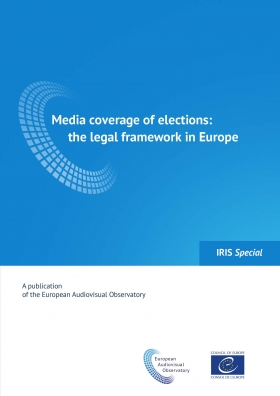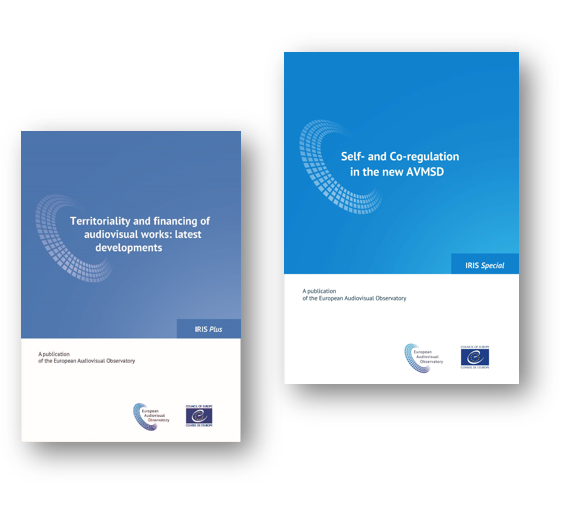IRIS Special

The themes covered are of direct practical relevance and are explored with academic rigour. The particular value of the IRIS Special series lies in its international approach or the comparison of different legal systems as the case may be. Recognised as a reliable source of information, the series has a track record of supplying both the audiovisual industry and also legislators and other decision makers at national and European level with highly useful data, overviews, ideas and analyses. The European Audiovisual Observatory publishes one or two IRIS Specials annually. Depending on their theme, they each contain 50-150 pages. In many cases, background material – standard-setting legal texts for example – is included.
- All published issues are available for free in PDF format (see below).
- Print versions for publications prior to 2022, may be purchased from the Council of Europe online shop.
IRIS Special 2012: Converged Markets - Converged Power? Regulation and Case Law
Eleven years ago, the European Audiovisual Observatory published the IRIS Special entitled “Television and Media Concentration”. Back then it still seemed meaningful to restrict the publication to the regulation of traditional forms of concentration in the broadcasting sector and, to this end,...
IRIS Special 2011: The Regulation of On-demand Audiovisual Services: Chaos or Coherence?
It is common practice that the European Commission sends fact finding letters to ensure that national laws of all member states correctly implement all aspects of EU directives within the given time frame. The letters addressed in March this year to Belgium, Bulgaria, the Czech Republic, Denmark,...
IRIS Special 2010: Digitisation and online exploitation of broadcasters' archives
IRIS Special 2010: The Regulatory Framework for Audiovisual Media Services in Russia
2009 saw a steady flow of information on the EU’s Audiovisual Media Services Directive and one does not need a crystal ball to predict the next wave of information that will spill over our desks in 2010, be it to tell us about transposition and implementation or about EU enforcement measures. The...
IRIS Special 2009: Ready, Set … Go?
The Audiovisual Media Services Directive. If the transposition of the EC Directive were to be compared to a competition, it would be between the national legislatures to see which has produced the best domestic law. Many different yardsticks could be used to measure which law is the “best”, such...
IRIS Special 2009: Creativity Comes at a Price
The signatories to the European Social Charter underline in its Preamble the fact that the standard of living and the social-well being of their populations are key to safeguarding human rights. In all likelihood they were similarly aware of how central this is for the prospering of their markets.
IRIS Special 2008 - Searching for Audiovisual Content
In 1989/90 Tim Berners-Lee developed the World Wide Web (WWW) for the European Organization for Nuclear Research (CERN). Barely 20 years old, it has made an unprecedented impact on the way we deal with information. The WWW has Become a key resource for private life and business. To Each of us it...
IRIS Special 2008 - Editorial Responsibility
Almost exactly twenty years after the adoption of the “Television without Frontiers” Directive, namely on 19 December 2009, the deadline for transposing the Audiovisual Media Service Directive (AVMSD) will expire. In other words, the national rules that so far served to facilitate cross-border...
IRIS Special 2007 - Legal Aspects of Video on Demand
Whenever a “new” audiovisual service becomes established, questions are inevitably asked about what legal norms govern it and whether those norms take sufficient account of all legitimate needs and interests. As far as video-on-demand (VoD) is concerned, it is clear that the “Television without...
IRIS Special 2007 - The Public Service Broadcasting Culture
In the recent Report “Public service media in the information society”, commissioned by the Council of Europe, Christian S. Nissen points to a provocative argument in the vibrant discussions about public service broadcasting. He writes that public service media can be seen as a remedy for a...
